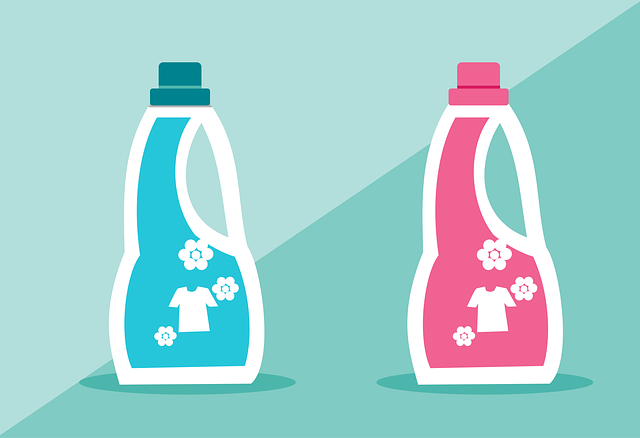Traditional chemical descaling agents harm ecosystems and human health, driving demand for sustainable alternatives. Natural methods like citrus acids and food ingredients offer effective, eco-friendly water softening while preventing mineral deposits. Bio-based descaling agents, derived from renewable resources, use enzymes to break down scale buildup, prolonging equipment lifespan. Advanced technologies, inspired by nature, utilize biodegradable polymers and smart sensors for gentle water treatment. Adopting these innovative, chemical-free practices contributes to a circular economy, securing future water supply while minimizing environmental impact.
In today’s world, exploring eco-friendly water treatment options is crucial for sustainable living. Traditional chemical agents pose significant environmental and health risks, prompting a shift towards natural alternatives. This article delves into the impact of these chemicals on our ecosystems and introduces effective descaling agents derived from nature. We explore bio-based solutions, advanced technologies, and sustainable management practices that revolutionize water treatment while minimizing ecological footprints.
- Understanding the Impact of Chemical Agents
- Natural Alternatives for Water Descalers
- The Role of Bio-based Solutions
- Advanced Technology in Eco-friendly Treatment
- Implementing Sustainable Water Management Practices
Understanding the Impact of Chemical Agents

The widespread use of chemical agents in water treatment has raised significant environmental and health concerns. These chemicals, including descaling agents, play a crucial role in removing contaminants and improving water quality. However, their impact extends beyond intended purposes. Many conventional descalers rely on corrosive or toxic substances that can damage aquatic ecosystems, leach heavy metals, and pose risks to human well-being.
Understanding the adverse effects of these chemicals is paramount as we navigate towards more sustainable water treatment options. The search for eco-friendly alternatives, such as natural descaling agents derived from plant-based compounds or biotechnology, offers a promising avenue. By embracing these innovative solutions, we can mitigate environmental damage, ensure safer water supplies, and contribute to a greener future without compromising on the quality of our vital resource—water.
Natural Alternatives for Water Descalers

Many traditional water treatment methods rely on harsh chemicals as descaling agents to remove limescale buildup. However, there are natural alternatives that offer a more eco-friendly approach to water desalting. These include using citrus acids like lemon or orange juice, which can effectively dissolve minerals and prevent scale formation without the environmental impact of synthetic chemicals.
Another promising option is incorporating food-based ingredients such as vinegar or baking soda. These household staples can act as natural descaling agents, softening water and preventing mineral deposits. By opting for these organic solutions, individuals can contribute to reduced chemical pollution while enjoying clean and scalable water for various applications.
The Role of Bio-based Solutions

Bio-based solutions are playing a pivotal role in revolutionizing water treatment by offering eco-friendly alternatives to traditional chemical descaling agents. These natural products, derived from renewable resources like plants and microorganisms, have gained significant attention due to their ability to effectively manage scale buildup while minimizing environmental impact.
In contrast to harsh chemicals, bio-based descaling agents act as gentle yet powerful cleaners, breaking down mineral deposits and preventing the formation of difficult-to-remove scales. Their mechanism involves harnessing the power of enzymes and other biological compounds that naturally dissolve and prevent calcium carbonate and magnesium hydroxide buildup. This not only extends the lifespan of equipment but also reduces the need for frequent replacement, making them a sustainable choice for industries aiming to minimize their environmental footprint.
Advanced Technology in Eco-friendly Treatment

The evolution of water treatment technology has led to a growing array of eco-friendly solutions, prioritizing sustainability while ensuring effective water purification. One prominent area of advancement is in descaling agents, which have undergone significant enhancements. Modern descalers employ innovative chemical formulations and advanced filtration techniques to minimize environmental impact without compromising performance. These technologies effectively remove scale-forming minerals from water, preventing their buildup in pipes and equipment.
Additionally, nature-inspired approaches, such as biomimicry and biological treatment methods, are gaining traction. Scientists draw from natural processes to develop biodegradable polymers and enzymes that soften water gently. These eco-friendly alternatives reduce the reliance on harsh chemicals, minimizing pollution and preserving ecosystems. The integration of smart sensors and data analytics further enhances these systems, allowing for real-time monitoring and optimization, ensuring efficient and sustainable water treatment practices.
Implementing Sustainable Water Management Practices

Implementing sustainable water management practices is a key aspect of eco-friendly water treatment. One effective strategy involves reducing the reliance on chemical descaling agents, which can have detrimental environmental impacts. By adopting natural alternatives and innovative technologies, such as using plant-based enzymes or electromagnetic treatments, water systems can be maintained without harmful chemicals.
These greener approaches not only preserve the local ecosystem but also ensure long-term sustainability. Additionally, implementing smart water management systems that monitor and optimize water usage can significantly reduce waste. This includes utilizing real-time data to detect leaks, controlling flow rates, and promoting water recycling. Such practices contribute to a circular economy, minimizing the environmental footprint of water treatment while ensuring adequate supply for future generations.
